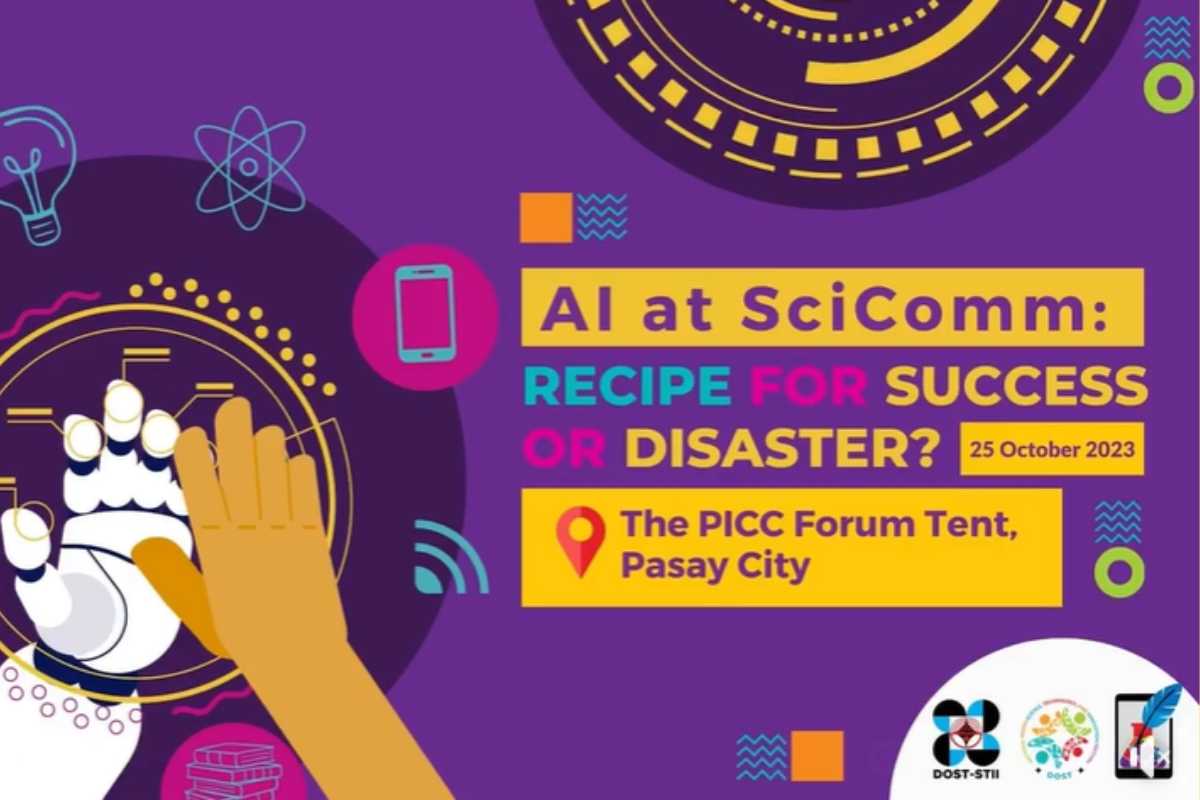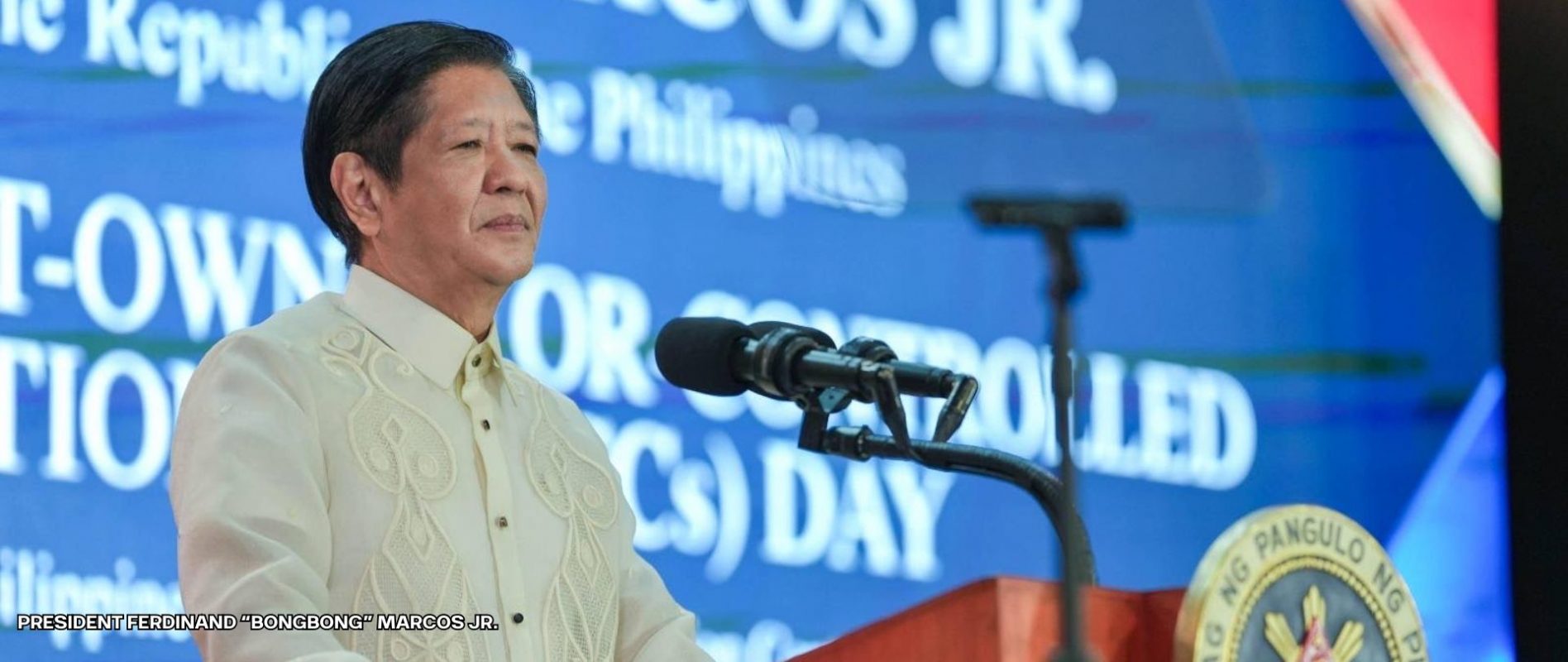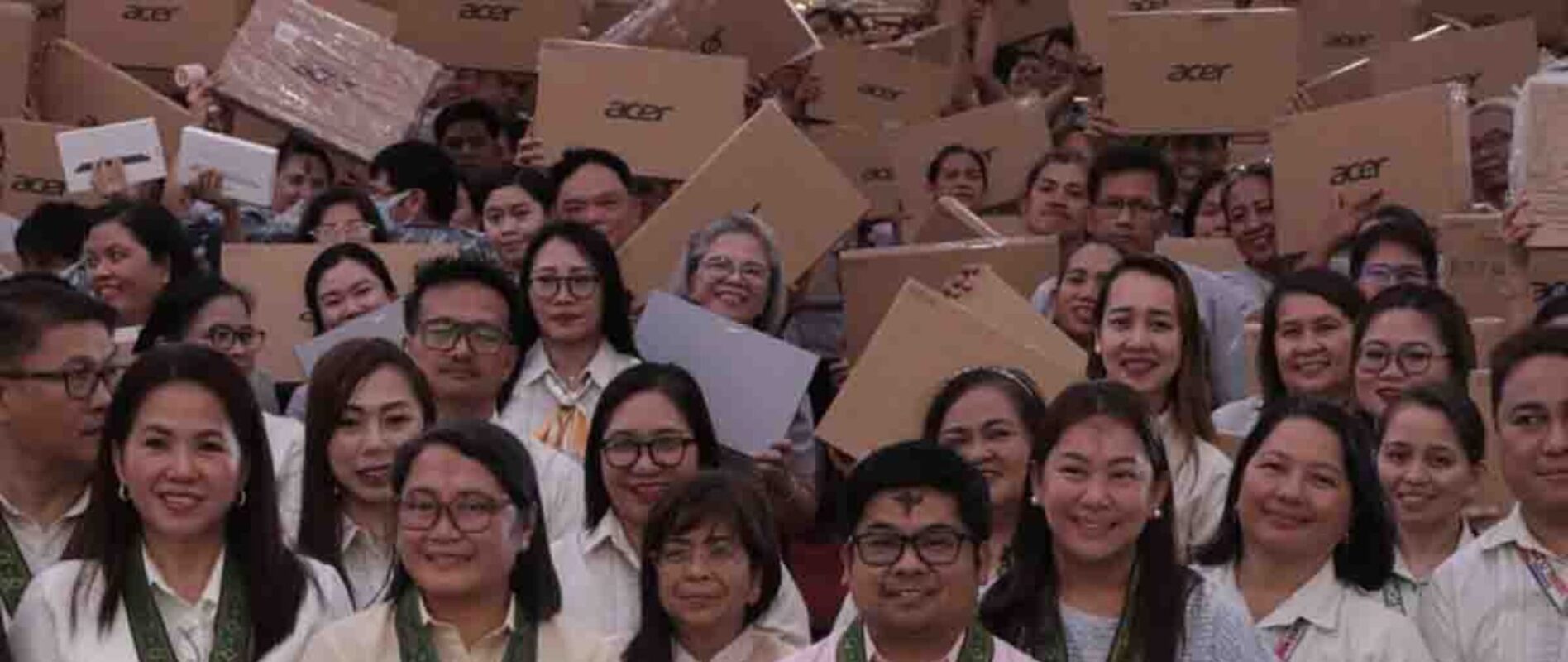FORUM PROVIDES STUDENTS MORE INSIGHTS ON SCIENCE AND AI
MORE than 200 junior and senior high school students from Metro Manila and nearby provinces gained new insights on science communication and Artificial Intelligence after attending a forum organized by the Department of Science and Technology-Science and Technology Information Institute.
The speakers in the event, held for the National Youth Science, Technology, and Innovation Festival on October 25, 2023, included government officials.
The forum was titled “AI at SciComm: Recipe for Success or Disaster?”
“AI is not here to take away our jobs but to make us more efficient in what we do,” said DOST-STII Director Richard P. Burgos, referring to how AI helps save time and energy in performing tasks that cannot be easily done without advanced tools.
Five out of ten Filipinos do not seek science, Prof. Abriel Adrian Madrid said. She presented the highlights of the study of the University of the Philippines Los Baños-College of Development Communication on the perspective of 1,200 Filipinos regarding science. This study serves as the basis for creating a harmonized science communication framework.
Madrid said Filipinos often perceive science as a technological innovation rather than a subject in school. They view science as abstract, while technology is seen as real. They are more interested in the products of science than the processes behind them.
“Science Communication is any social conversation about science in everyday life. As a Science Communicator, it is our responsibility to make science visible and usable,” Madrid said.
She presented some initiatives of UPLB to provide the public with fun and meaningful exposure to science-based information. She specifically discussed Healthy Eating, Active Lifestyle, for Planetary Health. This mobile application, powered by AI, can automatically identify food in images, categorize it according to food groups, and provide nutritional content per serving.
Using HEAL-PH, users can measure the right portion of meals and track movement, burned calories, water intake, and length of sleep.
Meanwhile, Prof. Benjamin M. Vallejo Jr. of UP Diliman-Institute of Environmental Science and Meteorology discussed the principles of responsible AI use adopted by UP students.
“AI cannot replace us because it still needs human agency. Humans still have full control over the expected results,” Vallejo Jr. said.
The professor advised students to choose AI tools with a commitment to human protection against abuse and data privacy.
Another speaker, Timothy James M. Dimacali, the head of UP Diliman College of Science-Science Communication Department, tackled human interventions in AI services that have compromised the boundary between classical and contemporary arts.
“AI shows us that there are new ways of seeing the world and they help inform our artists,” said Dimacali.
While AI has made everything easier, it is still important to learn how to properly instruct AI to execute concepts, styles, and desired outputs, he added.














